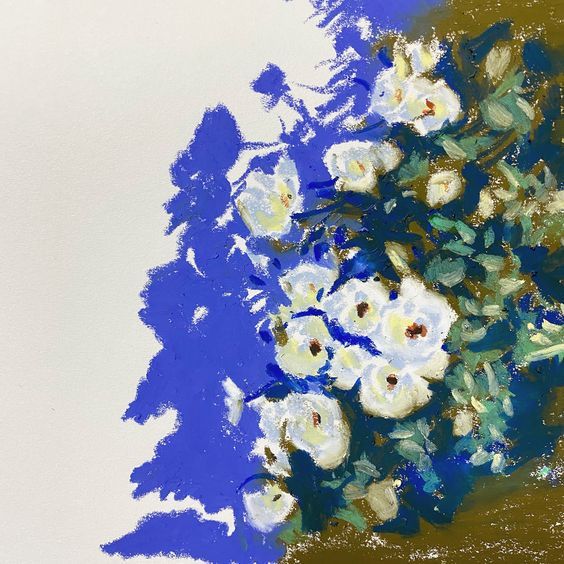Living with ADHD as an adult comes with unique challenges, especially when it comes to focus, organization, and follow-through. The good news? Small changes in how you approach tasks and structure your day can make a huge difference. These 19 practical tips are designed to help you navigate daily life with more ease—no medical advice, just real-world strategies.
Tips for Time management
Managing time is one of the most challenging parts of life for adults with ADHD. Problems like time blindness, decision paralysis, procastination, missing deadlines and under estimating the time required to do something. You've probably been through all of them.
1. Use Timers
For ADHD, timers are a lifesaver. They help set clear start and end times, reducing procrastination, time blindness, and decision fatigue while making tasks feel more manageable and less overwhelming.
Pomodoro: The Pomodoro technique helps you do intentional focus sessions and take regular breaks.
5 Minute rule: When you struggle to start a task, just tell yourself to do it for 5 minutes. If you don't feel like doing it after that duration, you are allowed to skip it. Use this technique along with timers.
2. Learn to manage distractions
Distractions are everywhere and they are inevitable. But that doesn't mean you can't escape them. There are many tools to help you manage your distractions.
Use a blocker: Using a website and an app blocker during your workday helps you stay mindful about your actions. Using this along with a timer, gives you even more flexiblity as you don't have to turn on the blocker at all times.
Setting time limits for apps and websites: These days we spend hours and hours browsing websites and scrolling apps. Setting a timelimit instead of blocking them completely also provides a flexible alternative way to make yourself aware.
3. Use simple Todo-lists
It's easy to complicate everything using complex tools. Simple seems easy but it never is. Just use a simple note taker or even better - a diary and use it as a todo list. Keep your list simple.
You might also try the 1-3-5 rule for setting daily task goals. It's easy - 1 big task, 3 medium tasks and 5 small tasks for the day. The challenge is sticking to it everyday.
4. Always use simple tools
Use simple tools to reduce friction, complex tools always add extra overhead and will eventually overwhelm and cause burnout.
When in doubt, stick to paper. Remember, tools can only help you add some structure. It cannot fix your life.
Tips for Organization
5. Keep Everything in a Designated Place
With so many things around the house, it's so easy to forget where you put stuff. Have a proper place, ideally a drawer or a table where you put your important things like keys, stationary etc. Once you build a habit, it's easy to stick to it.
6. Embrace Minimalism
Having too many things can lead to decision paralysis. The minimalism trend seems to have died down in the past few years and consumption is more than ever. While consumption is not bad, we sometimes tend to over indulge and buy more things than we need. And we end up not using them anyway. So buy, but buy with intention.
7. Have a “Landing Zone” Near Your Door
Set a designated spot near your door, use this to drop your wallet, keys and other things. Pretty handy to remember them on your way out.
8. Do the pocket tap
Whenever I’m going out, I do what I call tap-tap. Basically I tap both my pockets and saw the name of the items mentally, then I tap my back pocket. Pretty handy when I forget things or dropped something somewhere.
It takes two seconds, but it saves me from forgetting my phone or keys.
9. Use Sticky Notes or Whiteboards
Visual reminders help ADHD brains stay on track. Sticky notes keep tasks in sight, while whiteboards provide a flexible space for brainstorming, planning, or tracking priorities at a glance.
10. Declutter your mind
Organization is not only about the things around you, but also about the things in your head. Our world is fast paced and things are happening constantly. Learn to slow down your thoughts, focus on breathing, walking and meditation.
Tips for Financial Management
11. Have 3 safety buckets. And one more as backup
Financial security starts with three essential buckets: emergency savings, short-term expenses, and long-term investments.** Having a fourth backup fund gives you extra flexibility for unexpected situations.
12. Automate investing part of your income every month
If you have ADHD, you probably procrastinate on saving and investing—it feels like extra friction every month. Instead, take time to choose a few stocks or funds, then automate monthly transfers. Most investment platforms make this easy. Set it to 10% or 15% of your income. Higher is better but everyone starts somewhere.
Overtime, this will compound and you will pat yourself on the back.
13. dd friction to your purchasing decisions.
Phones make online shopping effortless, making it easy to overspend. To stay within budget, I follow a simple rule: I only shop on my computer and never save my card. This added friction makes every purchase more intentional.
Tips for Mindfulness

14. Use a screen time app to regulate your phone usage
Phones are designed to keep you hooked. Use a screen time app to set limits, block distractions, and stay mindful of your usage instead of falling into endless scrolling.
15. Set 15 minutes aside for daily journaling
Journaling helps organize thoughts, track emotions, and clear mental clutter. A simple 15-minute habit can improve self-awareness and create a sense of control over your day.
16.Set realistic expectations
ADHD brains tend to overcommit and get frustrated when things don’t go as planned. Set goals that match your energy and attention span, and allow flexibility to adjust without guilt.
Tips for Managing Stress
17. Try swimming
If you’re comfortable with water, swimming is an excellent way to reduce stress. The rhythmic movement and deep breathing help calm the mind while providing a full-body workout.
18. Combine daily walks with creative outlets
Walking is great for mental clarity, but adding a creative element makes it even better. Try urban sketching, photography, or rock collecting as you explore—engaging both movement and creativity.
19. Find communities near you
Online friendships are great, but nothing replaces real-life connections. Look for local meetups, hobby groups, or social events to spend quality time with people face-to-face.
Parting advice
Always keep exploring new things. Every skill, habit, and experience adds up, even if it doesn’t seem useful right away. Just because you try something doesn’t mean you have to commit to it forever. Some things will stick, others won’t—and that’s okay. Growth isn’t about getting everything right the first time, but about staying open to change and revisiting ideas when the time feels right.

